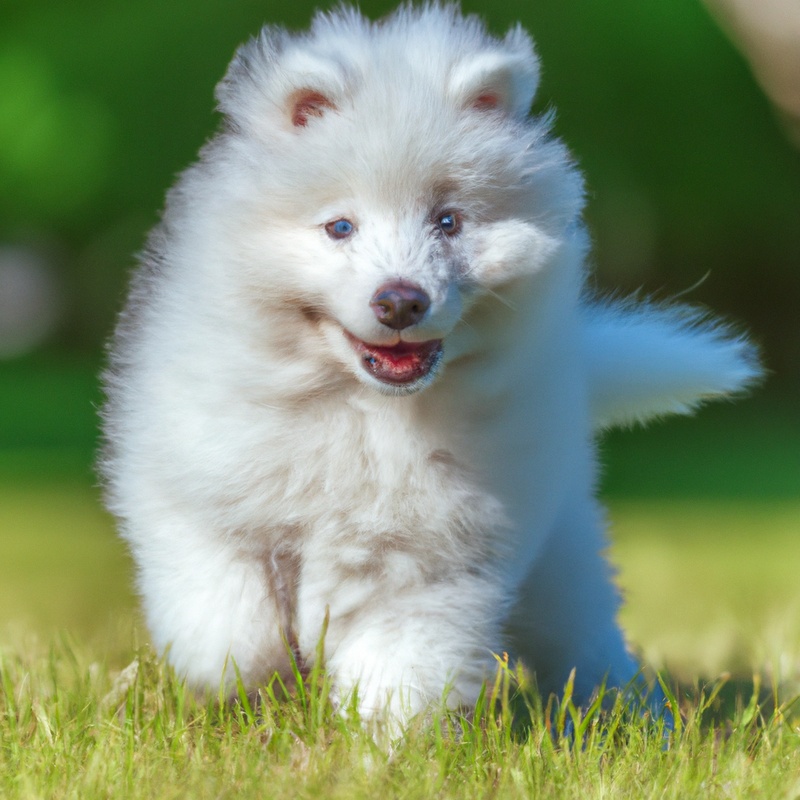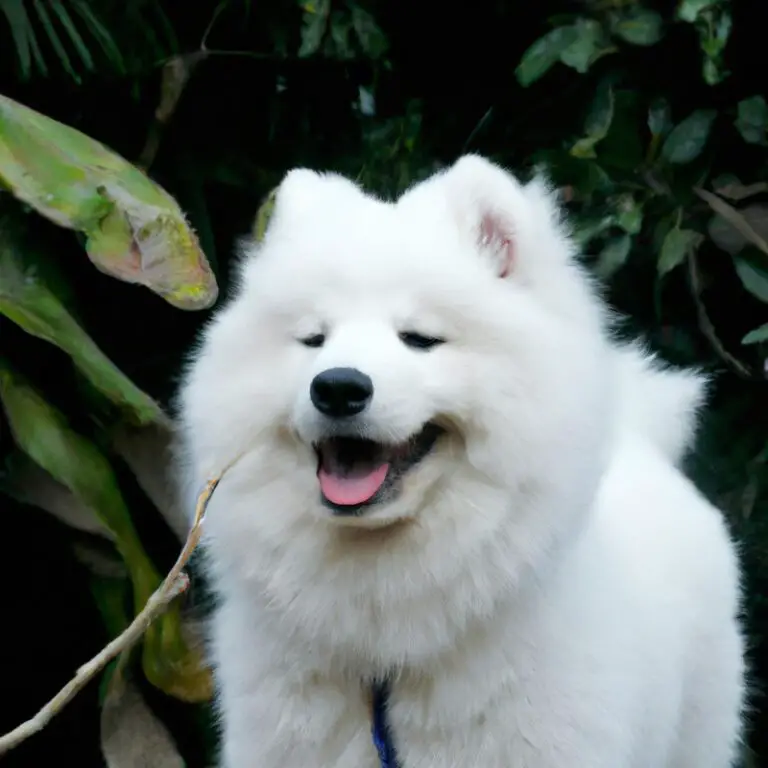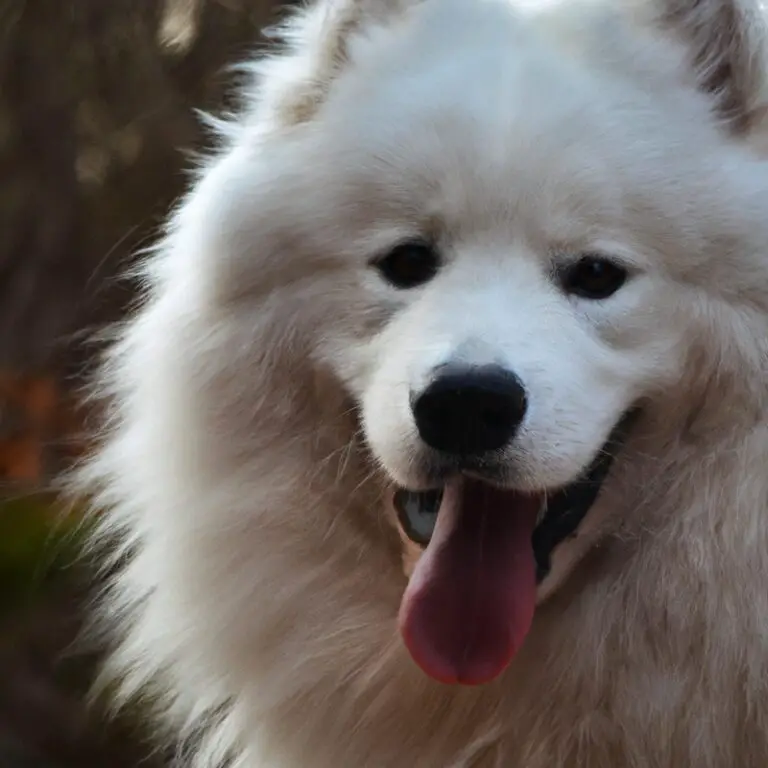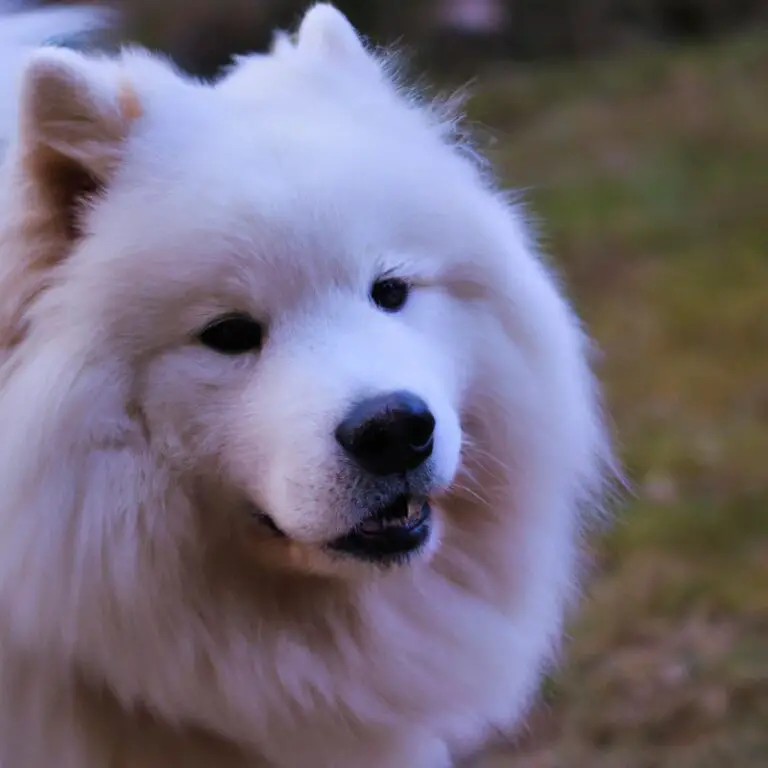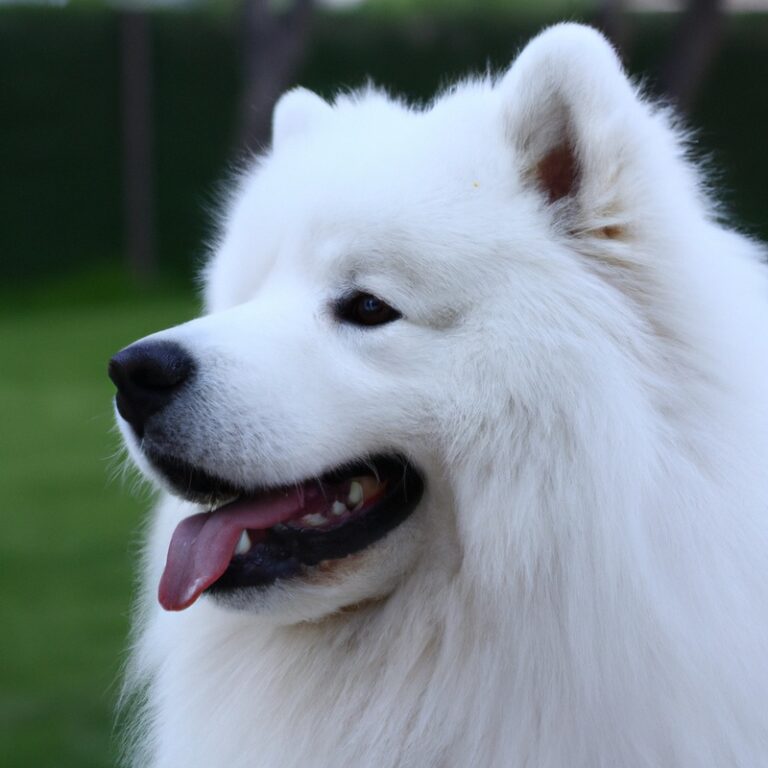How To Create a Daily Routine For a New Samoyed Puppy?
Key Takeaways:
- Establish a consistent feeding schedule for your Samoyed puppy to promote regularity and facilitate potty training.
- Incorporate plenty of mental and physical exercise into your puppy’s daily routine to prevent boredom and promote overall well-being.
- Create a structured sleep schedule to help your Samoyed puppy establish healthy sleep habits and promote proper growth and development.
- Implement a consistent training routine, including positive reinforcement techniques, to teach your puppy essential commands and encourage good behavior.
Are you ready to dive headfirst into the wonderful world of Samoyed puppy parenthood? Well, buckle up because I’m here to guide you through the exciting and sometimes overwhelming journey of creating a daily routine for your new furry friend.
From meal times to exercise, potty training to mental stimulation, socialization to bedtime routines – we’ll cover it all.
Together, we’ll establish a solid foundation for your Samoyed’s growth and development, ensuring a happy, healthy, and harmonious life for both of you. So, grab a leash, put on your puppy-parent hat, and let’s dive in!
Establishing the basic schedule for your Samoyed puppy
How many meals a day should you feed your Samoyed puppy?
For a Samoyed puppy, it is recommended to feed them three meals a day.
This helps to ensure they receive the necessary nutrients and maintain a steady energy level.
Providing regular meals also aids in establishing a routine and making training easier.
As your puppy grows, you can gradually transition to two meals a day once they reach adulthood.
Remember to consult with your veterinarian for personalized advice based on your puppy’s specific needs.
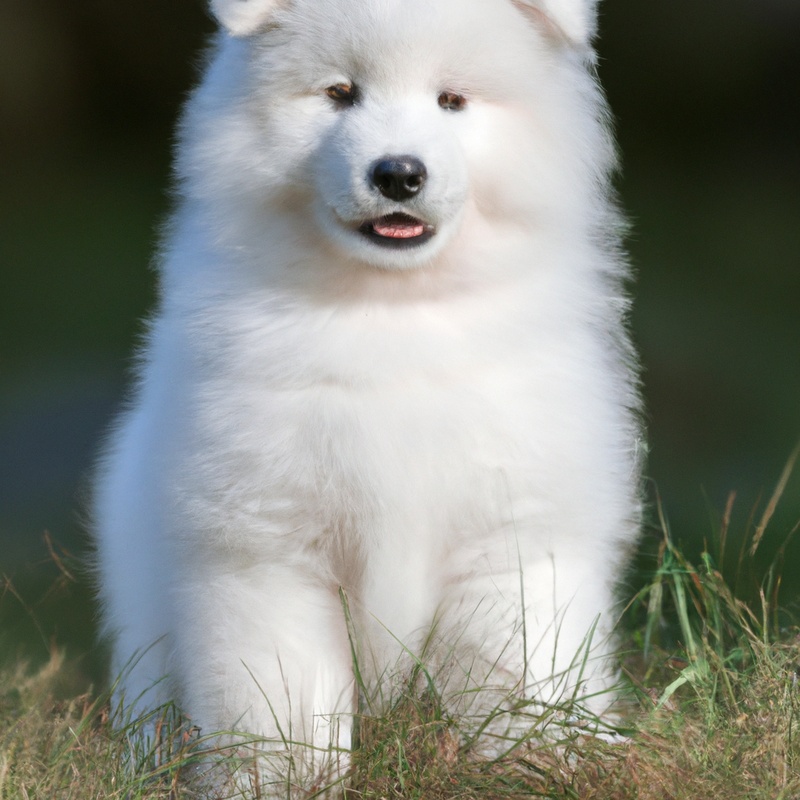
What time should you feed your Samoyed puppy?
You should feed your Samoyed puppy at consistent times throughout the day.
Puppies have small stomachs, so it’s important to give them regular meals to help with digestion and prevent overeating.
Aim for three to four feedings per day, with the last meal being around 6 pm.
This will give your puppy enough time to digest their food before bedtime and help prevent accidents during the night.
It’s also a good idea to consult with your veterinarian for specific feeding recommendations based on your puppy’s age, weight, and activity level.
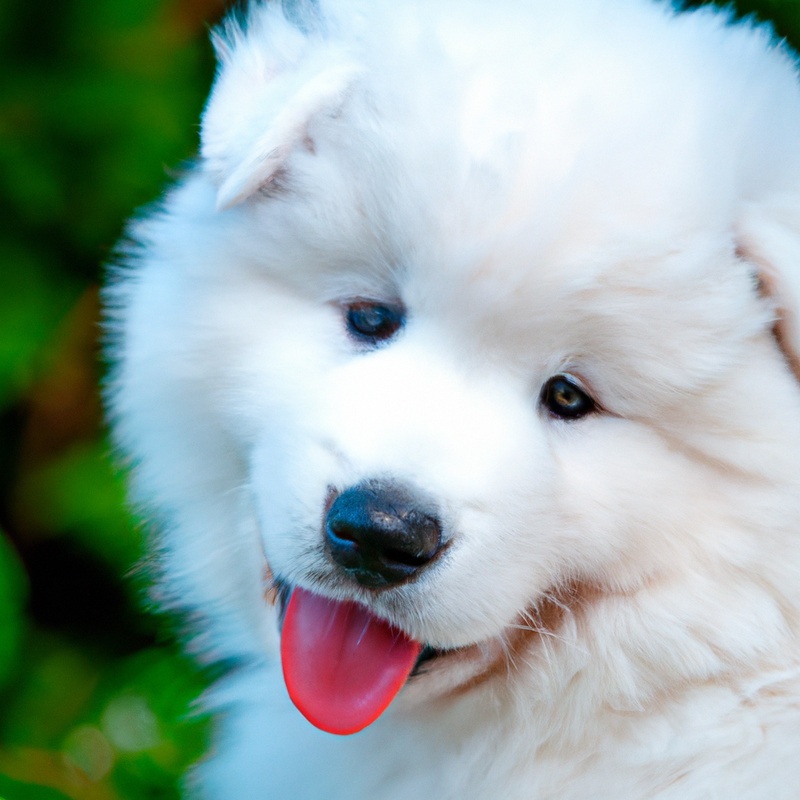
How much exercise does a Samoyed puppy need?
A Samoyed puppy needs around 30-60 minutes of exercise each day.
This breed is active and loves to play, so it’s important to provide them with opportunities to burn off energy.
Activities like walks, playtime, and mental stimulation are great for keeping your Samoyed happy and healthy.
Gradually increase exercise as your puppy grows to avoid overexertion.
Remember to always consider your pup’s individual needs and consult with your veterinarian for personalized advice.
When should you schedule playtime for your Samoyed puppy?
Playtime for your Samoyed puppy should be scheduled multiple times throughout the day.
It’s important to remember that puppies have lots of energy to burn and need regular exercise and mental stimulation.
Aim for at least three play sessions, spread out evenly in the morning, afternoon, and evening.
Each play session can last around 15 to 30 minutes, depending on your puppy’s stamina.
Some fun activities to include are fetch, tug-of-war, and interactive puzzle toys.

How many hours of sleep does a Samoyed puppy need?
A Samoyed puppy typically needs around 18 to 20 hours of sleep per day.
They are active and playful during their waking hours, but their bodies and minds are still developing, so they require plenty of rest.
Adequate sleep is essential for their growth and overall well-being.
Make sure to provide them with a cozy and quiet sleeping area to help them get the rest they need.
What is the ideal bedtime routine for a Samoyed puppy?
An ideal bedtime routine for a Samoyed puppy should incorporate exercise, relaxation, and consistency. Start by taking your puppy for a walk or playtime before bed to drain their energy.
Follow this with some quiet time, such as a chew toy or grooming session, to help them wind down.
Create a cozy sleeping area that is comfortable and secure. Stick to a consistent schedule to establish a routine.
Avoid stimulating activities close to bedtime to ensure a peaceful sleep for your Samoyed puppy.
House training and potty breaks for your Samoyed puppy
How often should you take your Samoyed puppy outside for potty breaks?
Take your Samoyed puppy outside for potty breaks every 2-3 hours during the day.
Puppies have small bladders and need frequent bathroom breaks.
It’s also important to take them out after meals, naps, and playtime.
Be consistent with a routine and praise them when they go outside.
As they get older, they can hold it longer, but in the beginning, frequent potty breaks are essential for successful house training.
How to set up a designated potty area for your Samoyed puppy?
Setting up a designated potty area for your Samoyed puppy is important for successful house training.
Here’s how you can do it:
- Choose a specific spot in your yard where you want your puppy to do their business.
- Use fencing or create a boundary with rocks or plants to clearly define the potty area.
- Lay down a layer of gravel or mulch to make cleaning easier.
- Introduce your puppy to the designated area and encourage them to use it by taking them there consistently.
- Praise and reward your puppy when they go potty in the designated area to reinforce the behavior.
By providing a designated potty area and being consistent with training, you can greatly improve the success of house training your Samoyed puppy.
What are the signs that your Samoyed puppy needs to go potty?
There are several signs that your Samoyed puppy needs to go potty. These may include sniffing the ground, circling or pacing, whining or barking, scratching or pawing at the door, or suddenly becoming restless or anxious.
It’s important to pay attention to your puppy’s behavior and be proactive in taking them out for potty breaks to ensure they are comfortable and avoid accidents indoors.
How to manage accidents during the house training process?
Accidents are bound to happen during the house training process with your Samoyed puppy. When managing these accidents, it’s important to stay calm and patient.
Firstly, immediately clean up the mess using an enzymatic cleaner to remove any lingering odors.
Secondly, avoid scolding or punishing your puppy, as it may create fear and hinder their progress. Thirdly, establish a consistent routine for potty breaks and make sure to take your puppy outside frequently.
Provide plenty of positive reinforcement when they go in the right place.
With time and consistency, accidents will become less frequent.
Mental stimulation and training for your Samoyed puppy
What are some mental stimulation activities for a Samoyed puppy?
To provide mental stimulation for your Samoyed puppy, try these activities:
- Puzzle toys and treat dispensers: Engage their problem-solving skills and keep them entertained.
- Hide and seek: Hide treats or toys around the house and encourage your puppy to find them.
- Interactive play: Play games like fetch, tug-of-war, or frisbee to engage their body and mind.
- Training sessions: Teach your puppy new commands or tricks to keep their mind sharp.
- Scent games: Hide treats or toys and let your puppy use their nose to find them.
- Socialization: Arrange playdates with other friendly dogs to keep your puppy mentally stimulated.
Remember, mental stimulation is essential for a Samoyed puppy’s well-being, so incorporate these activities into their daily routine to keep them happy and engaged.
How to leash train your Samoyed puppy?
Leash training your Samoyed puppy can be a fun and rewarding experience. Here’s how to do it:
- Start by introducing your puppy to the leash in a calm and positive environment. Let them sniff it and get used to its presence.
- Once your puppy is comfortable with the leash, attach it to their collar or harness. Begin by walking short distances inside your home or a quiet area.
- Use positive reinforcement techniques such as treats and verbal praise to reward your puppy for walking nicely on the leash. This will encourage good behavior.
- Gradually increase the distance and duration of your walks, always rewarding your puppy for good behavior. Be patient and consistent in your training.
- If your puppy pulls on the leash, stop walking and wait for them to calm down. Only proceed when they are walking politely beside you.
- Practice walking on a loose leash in different environments to help your puppy become accustomed to various distractions.
Remember, patience and consistency are key when leash training your Samoyed puppy. Enjoy the process and have fun bonding with your furry friend!
How to teach basic commands (sit, stay, etc.) to your Samoyed puppy?
To teach basic commands to your Samoyed puppy, start with one command at a time. Use positive reinforcement, such as treats or praise, to reward your puppy when they successfully perform the command.
Keep training sessions short and frequent, and make sure to be consistent with your cues and expectations.
Practice the commands in different environments to generalize their understanding. Patience and consistency are key to successfully teaching your Samoyed puppy basic commands like sit, stay, and more.
How to handle common behavior issues in Samoyed puppies?
Samoyed puppies can exhibit common behavior issues, but there are ways to handle them effectively.
One common issue is excessive barking.
To address this, provide regular exercise and mental stimulation to keep them engaged.
Another issue is chewing on furniture or objects.
Redirect their attention to appropriate chew toys and use positive reinforcement when they choose those toys instead.
Lastly, potty training can be challenging.
Establish a consistent routine for bathroom breaks and reward them for going outside.
With patience and positive reinforcement, you can address these common behavior issues in Samoyed puppies.
Socialization and interaction with other dogs and people
How to introduce your Samoyed puppy to other dogs?
When introducing your Samoyed puppy to other dogs, start by choosing a calm and neutral environment. Allow them to meet slowly, keeping both dogs securely on a leash.
Observe their body language and provide positive reinforcement for any calm and friendly behavior.
Gradually increase their interactions, always ensuring safety. Monitor their playtime and intervene if needed.
With patience and proper introductions, your Samoyed puppy can have positive experiences with other dogs.
How to socialize your Samoyed puppy with new people?
To socialize your Samoyed puppy with new people, start by exposing them to different types of individuals.
Encourage friends and family to visit and interact with your puppy.
Let them offer treats and gentle petting while maintaining a calm and positive atmosphere.
Take your puppy for walks in public places where there are people around.
Gradually increase the level of interaction as your puppy becomes more comfortable.
Remember, patience and positive reinforcement are key in helping your Samoyed puppy feel at ease with new people.
What are some activities you can do to promote socialization for your Samoyed puppy?
To promote socialization for your Samoyed puppy, here are some activities you can do:
- Take your puppy for regular walks in different environments to expose them to new sights, sounds, and smells.
- Organize playdates with other friendly and vaccinated dogs to allow your puppy to interact and learn appropriate doggie manners.
- Enroll your puppy in puppy socialization classes where they can engage with other puppies and learn how to behave in a group setting.
- Invite friends and family over to your home so your puppy can experience different people and learn to be comfortable around strangers.
- Bring your puppy to pet-friendly places like outdoor cafes or dog parks to expose them to a variety of people and situations.
Remember to always introduce new experiences gradually and positively, ensuring you create a safe and enjoyable environment for your Samoyed puppy to socialize and grow.
Frequently Asked Questions (FAQs)
How long does it take to establish a daily routine for a Samoyed puppy?
Establishing a daily routine for a Samoyed puppy typically takes about 2-3 weeks. During this time, you’ll need to be consistent in feeding, exercise, potty training, and sleep schedules.
Gradually introduce them to these routines, and be patient as they adjust.
Keep in mind that every puppy is different, so it’s important to adapt the routine to suit their individual needs. With time and consistency, your Samoyed puppy will settle into their routine and thrive.
Can you deviate from the daily routine occasionally?
Yes, you can deviate from the daily routine occasionally for your Samoyed puppy.
While it is important to establish a consistent routine for their well-being and training, it is also necessary to allow for some flexibility.
Occasional changes in the routine can help your puppy adapt better to different situations and environments.
Just make sure to provide them with exercise, mental stimulation, meals, and potty breaks regardless of any deviation from the routine.
What should you do if your Samoyed puppy seems restless or anxious during the daily routine?
If your Samoyed puppy seems restless or anxious during the daily routine, there are a few things you can do to help them feel more at ease. First, make sure their environment is calm and comfortable.
Provide a designated space where they can relax and feel safe.
Second, establish a consistent routine for feeding, exercise, and playtime. This will give them a sense of structure and predictability.
Third, consider incorporating calming activities such as puzzle toys or gentle massages.
Lastly, if their anxiety persists, consult with a professional trainer or veterinarian for further guidance.
Is it necessary to follow a strict schedule for a Samoyed puppy’s daily routine?
Yes, it is necessary to follow a strict schedule for a Samoyed puppy’s daily routine. Establishing a routine helps your puppy feel secure and learn what is expected of them.
It also helps with potty training and preventing accidents in the house.
Your puppy will thrive on consistency and structure, so make sure to include feeding times, potty breaks, playtime, exercise, and nap times in their daily routine. Stick to the schedule as much as possible to create a well-behaved and happy Samoyed.
Final Verdict
Establishing a daily routine for your new Samoyed puppy is crucial for their overall well-being and development.
By providing them with a consistent schedule for meals, exercise, playtime, and sleep, you can set them up for success.
Additionally, house training, mental stimulation, and socialization should be incorporated into their routine to promote good behavior and a balanced personality.
Remember, consistency is key, and it may take some time for your puppy to adjust to the routine.
Stay patient, be flexible when needed, and always prioritize their needs.
By following these guidelines, you can create a structured and fulfilling daily routine that will benefit both you and your Samoyed puppy.

